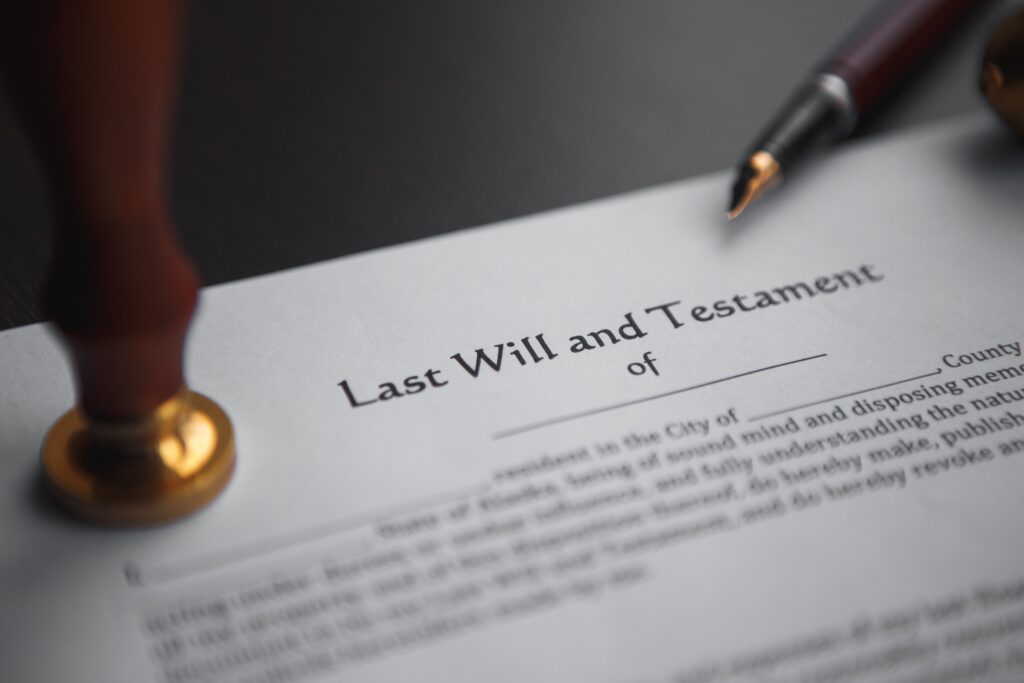I get this question a lot: “Beau, what’s the single most important thing I can do in my estate plan to ensure that my plan is carried out with the least amount of controversy, delay, and cost?” Of course, I always say, “You should always use an attorney to draft quality documents.” However, if my advice ended there, it would make for a rather short and uninformative article. So, what else should you focus on as the second-most important thing you can do for your estate? You have likely never considered it. You should consider appointing a disinterested third party professional (a professional fiduciary) that you pay to be your executor.
Please note I say you should “consider appointing” rather than you “should appoint.” My advice comes with a lot of caveats. Everyone’s situation is unique. There are many factors to consider. What makes sense for one estate may not make sense for every estate. But, again, the most generic piece of advice I can offer is to consider a professional fiduciary. This does not apply between married couples or registered domestic partners while one partner or spouse is alive. If a man dies and appoints his wife (or vice versa), that is fine and not what I am addressing in this article. But, after both mom and dad have died (or a single person has died), there is a real advantage to using the professional fiduciary.
Consider the typical options. Option one (the traditional choice) is your brother or sister or son or daughter or father or mother (the family fiduciary). You choose the most responsible one of the lot. But, there are significant drawbacks to this appointment. Let’s assume you pick the brother. The potential drawbacks are many: (1) he will likely be emotionally distraught after your death because he was close to you – which might cloud his mandatory lawful duties; (2) he will likely have his own full-time job or family responsibilities to attend to which makes him unable to devote the time necessary to the project; (3) He has never acted as an executor before; (4) his appointment creates a suspicion among the heirs that he is acting improperly because of bias/jealousy/mistrust issues (whether substantiated or not); (5) the appointed personal representative may be lawfully paid for his/her work from the estate, so the savings to the estate by using a family member might not materialize. And if the family fiduciary fails in his or her duties in a material way that leads to loss for the estate and the heirs, the heirs are put in a sticky situation of having to decide whether to sue that family fiduciary or not.
Option two is the professional fiduciary/executor. She has acted in this capacity many times. She is well versed in her statutory duties. She is able (and expected) to devote her full-time attention to the estate. She is local to the area and can easily respond to a variety of local issues that might crop up during the pendency of the administration of the estate. She engenders no bias from the heirs; in fact, there is sometimes a heightened feeling of trust. She charges for her work, but the charge is fair and proportional to the work performed and ultimately overseen by the court and/or the heirs of the estate. And, if she fails in her duties in a material way, the heirs can simply enforce their rights without jeopardizing a family relationship.
The professional fiduciary can serve as an executor, a trustee (if needed), or a power of attorney. And, this advice applies equally to both will-based estate plans and revocable living trust-based estate plans. It applies whether you have an estate which is small in value or a very large estate. And, the use of a professional fiduciary is especially effective for families of second (or third) marriages where the husband has his own children and wife has her own children.
Sometimes, we believe (or want to believe) that our family fiduciary knows us and knows what we want done with our stuff after we pass. This is often a mistaken belief. First, if it is not in the will, the family fiduciary probably cannot do it, whether it was your intent or not and regardless of how many fireside chats you had about your estate plans. Second, in most circumstances the division of the small sentimental items can be easily accomplished through the amicable division of the heirs (overseen by the professional). And, where there is disagreement regarding the division of those same items, the professional can easily fix the situation through a variety of simple techniques like an auction-type process where an heir can “bid” on items from their share of the inheritance. Though a family fiduciary can do the same thing, the process is complicated by the fact that he or she is often unfamiliar with the options and the other heirs have a heightened perception of bias.
The professional fiduciary is a niche market. But, you do have choices. There are banks, trust companies, and qualified individuals who act as professional fiduciaries. Sometimes attorneys do it too (though I usually don’t recommend it) and sometimes accountants do it. Ask your attorney or financial planner for referrals for the people they have successfully worked with, and save yourself and your family from a lot of potential conflict during what will already be a difficult time.
387697-2
* Licensed, not practicing.
The opinions voiced in this material are for general information only and not intended to provide specific advice or recommendations for any individual or entity. This information is not intended to be a substitute for specific individualized tax or legal advice. We suggest that you discuss your specific situation with a qualified tax or legal advisor.
Securities offered through LPL Financial, Member FINRA/SIPC. Investment Advice offered through Cornerstone Wealth Strategies, Inc., a registered investment advisor and separate entity from LPL Financial.












